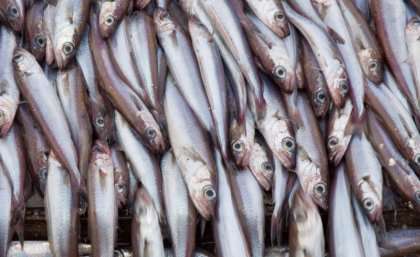Grey matter matters when it comes to feeling pain

Like humans, fish recoil from pain. But the fish pain reflex mechanism operates quite differently to the way it works in humans, University of Queensland research shows.
Professor Brian Key, from the School of Biomedical Sciences, said scientists had known for some time that fish can learn to avoid painful experiences, "even when most of the brain is removed".
"Fish don't have complex brain structures," said Professor Key, who has published new research on the mechanics of pain.
"They do not have 'grey matter', the thin outer layer of brain cells that enables humans and other mammals to carry out functions such as reasoning or imagining."
Professor Key said the new study was significant in helping to understand pain processes in humans with damaged grey matter, and people in comas or semi-conscious states.
"The ability of humans and other animals to experience pain is due to the complex wiring and structure of our brains," he said.
"Fish have evolved from our ancient ancestors without developing grey matter or any other region of the brain that has a similar structure or function."
"The research indicates that the simple structure of a fish brain renders them unable to respond to stimuli or feel pain in the same way that humans do."
Professor Key, a neurobiologist, said there had been much debate between different branches of science on the topic.
Some comparative psychologists who focused on fish behaviour were not convinced by the neuroscience research indicating that fish could not feel pain.
"It's controversial, there's no denying it," Professor Key said. "But neither will I resile from what the research indicates."
"This research shows it is probable that fish do not 'feel' pain.
"Inductive reasoning tells us this is what's happening – but of course the assessment is not absolute."
"We suspect that some humans who have suffered strokes that damage their grey matter cannot feel pain.
"This would indicate that fish – with no grey matter – also do not feel pain."
"When a fish is flapping about on the deck of a boat, humans respond emotionally," Professor Key said.
"It's an anthropomorphic response – we are mentally transposing the human experience – presuming that the fish has the same emotions and feelings as a human."
"However, the fact that a fish will continue to struggle with a hook in its mouth would indicate it doesn't feel pain in the same way that we do."
Professor Key said although it was unlikely that fish could 'feel' pain, harmful stimuli still caused stress to their bodies.
"Fish secrete stress hormones," he said.
"This research should not be interpreted as meaning that we do not need to care for their welfare.
"Fish must be kept in conditions which ensure their health and natural behaviour can be maintained."
Professor Key noted that the term "fish" referred to a highly diverse group consisting of about 30,000 species.
"The scientific investigations referenced in my paper have been undertaken on only a small number of fish, so there is considerable extrapolation involved when we use the generic term 'fish'," he said.
"It is also important to remember that whales and dolphins are not fish, they are 'marine mammals' with lots of grey matter."
More information: "Fish do not feel pain and its implications for understanding phenomenal consciousness" Biology & Philosophy December 2014, link.springer.com/article/10.1007%2Fs10539-014-9469-4#page-1
Provided by University of Queensland



















